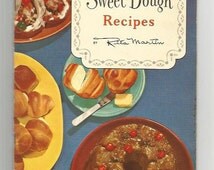

Sloan's sense of place is palpable, and his prose is dusted with luxurious lines to be savored. Sloan does a wonderful job of detailing several different workplaces, from a hyperactive, but depressing, San Francisco tech firm, to the kitchen of an upscale restaurant, to a farm that creates Slurry, a nutritive food replacement. On the crust, Sourdough is a buddy book it's about the wacky adventures of Lois and the Clement Street Starter, from a backyard oven to a literally underground farmer's market filled with eccentric characters concocting new delicacies.But slice a little deeper, and you will discover, Sourdough is a novel about work. It pushes us to do something simpler, to wonder at the weird beauty, set down in Sloan’s matter-of-fact prose, of life - or at least marvel at the strange sights and tastes of a familiar world embellished by a particularly inventive mind. And even then, the novel defies clear-cut analysis. Instead, whatever lessons we might draw from Sourdough are more personal, ambiguous and hard to extract: having humility, perhaps, or an open mind. What Sourdough isn’t concerned about are topical conflicts in food today - characters touch on the follies of industrialized food production, boutique organic farms and GMOs, but only briefly.

sustenance-related tales resonate throughout the story until food itself comes across as a sort of grand, delicious imprint of humanity. But after Lois learns a thing or two about how to really live, Sloan’s story expands into something decidedly, and delightfully, weirder. Lois’ turnaround is satisfying to watch - who doesn’t want all their problems solved by the simple act of baking? - but it goes down a little too easy, more like artificially flavored candy than a loaf of whole wheat.


 0 kommentar(er)
0 kommentar(er)
